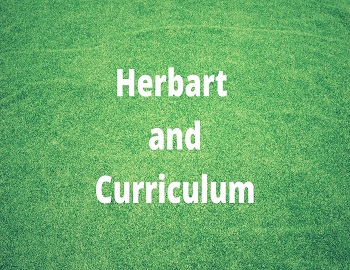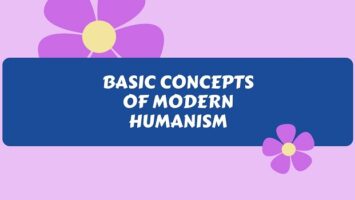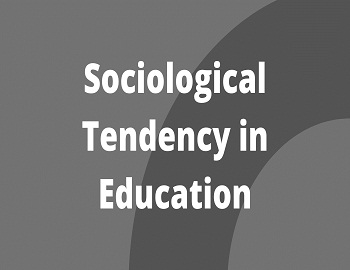Table of Contents
Life and Educational Ideas of John Locke:
John Locke was born in 1632 A.D. in a prosperous family in England. The prominent political events such as the Civil War, Bloodless Revolution, Restoration etc. took place during his lifetime. His mother died during his childhood. His father has also died during his childhood and had left a small property for him. John Locke was of a very modest nature and his physical constitution was weak. He received his early education in Westminster School and there he showed his interest in a sense which continued throughout his life. After completing his early education in Westminster, he went to Oxford University to receive higher education. He received the degree of M.A. from Oxford University and thereafter became a teacher there. In Oxford, he wrote songs in praise of Cromwell in English and Latin languages. During his study at Oxford University, he was very much influenced by the philosophy of Descartes. In the meantime, he came into contact with Lord Shaftsbury. He has entrusted the charge of the education of the children of Lord Shaftsbury. He became the friend, adviser and physician of the family of Lord Shaftsbury. He also helped Lord Shaftsbury in the writing of his book, “The Fundamental Constitution of Carolina”. While living in the company of Lord Ashely, he wrote his favourite book, “Essay in Human Understanding”. When Lord Shaftsbury was appointed the Chancellor, John Locke continued to serve him as his special adviser. From 1675 to 1679 A.D. John Locke travelled to France and also devoted his time to study there. During the imprisonment of Lord Shaftsbury in Holland, John Locke also lived there for 6 years. When the Bloodless Revolution took place in England in 1688, John returned to England and published his book, “Two Treatises”. He also served as a member of the Board of Trade and Plantation. He led peaceful and respective life, although he suffered weak health throughout his life. He is famous as a teacher, scholar, physician, administrator and politician. He made original analyses of nature, human nature and society and became famous as a serious philosopher, and scientific thinker. Regarding his personality, H. G. Good, the author of “History of Western Education” has remarked, “John Locke was a man of the council table rather than the study, prudent and skilful rather scintillating known for his genial friend lines, he was equally noted for self-restraint and ability to hold his tongue”.
John Locke Principles of Education:
John Locke was more famous in the Continent of Europe than in his own country. He was a follower of the principle, knowledge acquired through one’s own experience. He believed in the experience acquired through one’s own senses. He was not a conventionalist. He wanted to make the search for truth by the wisdom acquired through his own experience. He gave chief importance to wisdom and intellect in life. That is why we do not find the discussion of the development of the delicate tendencies in his educational programme. John Locke was an individualist. He considered man free from his very nature. He was of the view that the existence of the State is nothing before an individual. The State is only the protector of the rights of the individual.
According to John Locke, it is not the duty of the State to give education to its citizen. It is the responsibility of the parents to educate their children. However, according to individualistic theory, even the father cannot force the child to study or receive education but Locke gives a very good logic in this regard. According to him, the child is not equal to his father in intellect. The child will develop his mind only according to age. A child of 6 years cannot have the mind and intellect of a young man of 25 years. The father knows it will as to which type of education will be proper for his child. Hence, it is desirable for the children to act according to the advice of their parents because whatever they do, shall be for their (children) welfare. According to his individualistic theory, Locke considers all personal equal. But he does not forget the influence of education. The difference that is there among the individuals is only of education. He has written that we can only make the proper use of whatever has been bestowed upon us by the nature. An attempt should be made that we may not develop vices and should try to inculcate good habits. However, he does not recommend unnecessary force or compulsion to achieve this.
Locke does not care much about the high ideals of the individual. He wants to make their living better. He wants to give them knowledge so that their intellectual development may be possible. He also diverts his attention to the health of the child He wants that body and mind of the individual should be developed in such a way so that he may be an able citizen of the civilized society. Thus, according to Locke, the aim of education is the physical, moral and intellectual development of the individual. Regrading physical education, Locke advises fresh air, exercise, rest, simple food and prohibit wine, very hot and tight clothes, keeping head and feet cold etc. The health of John Locke was not good. He always suffered from some or other physical trouble. Perhaps, for this reason, he also started the study of medical science. In the modern period, we may not agree with John Locke’s rules regarding health. However, it must be admitted that by emphasizing the need for good health for the development of intellect, he attracted the attention of the persons towards it.
John Locke was of the view that special care should be taken off the mind of the children. He advised that the children should be given such education from the beginning as may prove to be advantageous to them later on. According to him, education develops or improves the mind. It should always be kept in mind as to whether the education which is being given to the child will prove to be their guide in future or not. It should always be kept in mind as to what effect it will make on the mind of the children and what habits they will develop in consequence of it. It was quite natural to think so for an individualistic scholar like John Locke. But we cannot agree with these views of Locke. He only concentrates the attention towards the individuals. He assigns no special values for “matter” and “knowledge”. He turns his eyes away from the welfare of society. He does not care for ordinary human nature. He only cares for the special features of the individual. He considers each child different from other child. Therefore, according to him, all the children cannot be taught through the same method. In ordinary schools, no attention was given to the salient features of the individual. Hence, Locke did not have any sympathy with the public school. He advised that a private tutor should be employed at home for each child. It may be pointed out here that if Locke had tried to learn something from Comenius, he would have not tried to ignore social welfare.
Locke considers the child as ignorant because his intellectual development has not taken so far. He, therefore, wants to prepare him for this. For this, the development of good health and good habits are necessary. He advises the development of good habits. Locke believed that without intellect, truth cannot be recognized. The development of intellect cannot take place through disorganized knowledge. Generally, the teachers think that it is necessary to give some knowledge to the students otherwise how will they pass in the examination. But Locke says that intellect cannot be developed through this type of knowledge. Because through this system the student only learns to repeat oral or in writing what he has learnt. Locke was of the view that proper development of the individual should be attempted. His aim was not to make them scholars. He wanted to make them learn the proper art of living. During those days, emphasis was given to studying the languages of Latin and Greek. Locke was in favour of developing the “virtue”, “intellect” and “ordinary” knowledge of the child.
Support of Utilitarianism:
Now we will try to see what type of knowledge Locke wanted to give to the children. According to Locke, knowledge was something that concerned the inner experience of man. Unless we ourselves experience something, true knowledge cannot be acquired. Knowledge cannot be acquired by the repetition of the experience of someone else. Carlyle also remarked that we have to see with our own eyes. However, it may be noted that it is not always possible. Sometimes we have to accept the experience of others. It will be impossible for us to carry on our work if we do not do so. Therefore, Locke says that by knowledge he does not mean the knowledge of different things but the truth determined by intellect. We can experience the knowledge only through the eyes of our mind. Locke wanted to give only utilitarian education to the child. The education which does not serve any purpose was of less value to him. That is to say, we should first know as to what benefit we will get by studying a particular subject and what influence it will make upon our mind. Herbart Spencer was also of the view that we receive the best education by learning only useful things. The followers of utilitarianism or useful education do not see its influence upon the mind or body.
In his book, “Thoughts Concerning Education”, Locke writes that from the point of view of individual benefit, a thing should be considered useful or unuseful. Thus it appears that the aim of Locke is only to acquire knowledge. It is obvious that he was a utilitarian in this respect. Bit it should be kept in mind that Locke does not want to give intellectual education to the children. According to him, intellectual education can be useful for only those, who can educate themselves or who themselves acquire the knowledge of good and bad or truth or untruth. There is not least doubt that if the development of science and psychological education had taken place during the time of Locke as in the present period, his ideas would have been more liberal and useful for education.
John Locke Curriculum:
Locke had no sympathy with the humanist system. He was of the view that reading and writing are necessary but they should not be given prominence. Those who have a tendency towards it are benefited from it. But it causes harm to others. Locke wanted proper use of independent thinking, power of investigation and intellect etc. With this purpose in view, he wanted to establish a new educational system. He did not want to teach language through grammar. He was of the view that language should be taught through talks. He believed the principle of Bacon that all knowledge is acquired through experience. He did not believe in the power of imitation. Consequently, he included those subjects in which there is a prominence of the experience of man. For example, he gave main importance to the study of science, geography, astronomy, mathematics, the Bible and history. For mutual exchange of thoughts, he advised the study of mother language and modern languages. He was not in favour of teaching Latin through grammar. He also removed the Greek language from the education of the “gentlemen”. He considered Latin not as an end but as a means. He considered mathematics comparatively better or more useful than logic. According to him, the education of mathematics develops the actual power of the children and makes them understand their own problems. He writes, “Nothing does this better than mathematics, which, therefore, I think, should be taught to all of those, who have time and opportunity not so much to make them mathematician but as to make them reasonable creatures”. He was of the view that children do not gain anything from the study of logic and literature. He also did not believe that the study of grammar and logic increase the memory of children. He was of the view that memory sharpens on account of a healthy mind and body. Hence no special practice is necessary for developing memory. We practise it always in our daily life. Hence it develops or sharpens in accordance with the health of our mind and body.
John Locke Disciplinary Conception of Education:
Locke was of the view that practice in one subject makes very little influence on any other subject. Learning of one language adversely affects another language. He emphasized the formation of habits in connection with moral education. He did not mind giving trouble to the mind and body for the formation of habits. According to him, the strength of mind and body lies in facing difficulties. The basis of all the virtues lies in this that mind should give up its desires and act according to his wisdom. However, he remarked that he did not want to keep children away from happiness. On the other hand, he wanted to make their life as much happy as possible. If the children are given education through the help of habits, they will learn useful things. For example, children are very soon encouraged if they form a habit to do some good work, then enthusiasm further increases. Locke remarked, “By example, by repetition and constant practice through praise and blame, rewards and punishment, good habits are to be formed”.
Locke wants that children should adopt a universally accepted social system. His aim is not to bring out any change in the social system. Locke’s view’s seen to be narrow in this respect. If we depend much on the child’s own habits, he will make very little progress. He will not develop the power to achieve anything by his own effort. Other scholars do not agree with the views of Locke in this respect. Rousseau has remarked that he wanted that the children should form the habit of not forming any habits. Thus, we see that Locke was not a naturalist like Rousseau because he considers that intellect is dependent upon habits. He believes that habits can be formed under the guidance of a good tutor at home. According to him, any strictness would be harmful in this respect, Locke wants that the children should be made to form habits by suppressing their desires through self-control. This is a disciplinary conception of education as propounded by Locke. Some scholars regarded John Locke as the representative of the disciplinary conception of education.
Handicrafts:
Like the educationists of the modern period, Locke also recommends handicrafts for children. He is of the view that man should be an expert in some or the other handicrafts. According to him, man will develop some utilitarianism by learning the different handicrafts, gardening, agriculture etc. This will be useful for his health. He thus indicates the principles of Rousseau. Rousseau also wanted that Emile’ should learn some crafts. During the time of Locke, travelling was given more importance in the education of gentlemen. Locke also recommends travelling as a means of education.
Education of Poor Children:
Locke also makes a reference to the education of poor children. He joined government service, being inspired by the feeling of service. He became a Government Commissioner in Commercial Department. During this period, he prepared a programme for the education of poor children. His programme could not be implemented but it indicates the tendency of that period. According to the Act of 1772, many work-houses were opened. It is possible that they might have been opened because of the influence of ideas of Locke but most of the work-houses were even worse than jails. According to Locke, children of poor people waste most of their time. They are a burden to their parents. As there is no good system for their work and education, their powers decline. Ordinarily, they do not do any work up to the age of 13-14 years. Hence he recommends that work-houses should be opened in each Parish, where children above the age of 4 years should come. The teacher should give them education in different crafts, so that in future they may serve the society in return for their food etc. The views of Locke seem to be narrow in this respect but we should not blame Locke so much as this was the social convention at that time. Keeping in view the social convention of that period, the condition of the children would have been certainly better than their homes by keeping them under the control of the teacher. However, it must be admitted that Locke believed in the discrimination between the poor and rich. He had no sympathy for the poor. In this respect, he is far behind Comenius.
Comparison of Locke with other Educationists:
Browning considers Locke a naturalist and regards him very close to Rousseau. We will make a brief comparison of Locke with some educationists. Like Herbart, Locke also says that desires are controlled through ideas. Ideas are those invisible powers in the mind of man, that rule over him. But the aim of Herbart and Locke was different. Locke wants to influence the conduct of the child whereas Herbart has a special concern with the education of the class. Locke does not mention natural science. Bacon and Comenius give more importance to the “matter”, whereas Locke gives importance to the “method”. Locke had no sympathy with the prevalent education. He emphasized the development of the character. He preferred teaching of education through tutor at home. He opposed the system of cramming. He wanted to bring out the element of utilitarianism. In this respect, he resembles Montaigne, but they differ in determination to the needs of life. Their definition of “virtue” is also different from each other. The Writings of Rousseau indicate that he was very much influenced by the ideas of Locke. Both want to give direct experience to the children in the beginning. Both were against physical punishment and wanted to make the method of education entertaining. The importance of books for children was less in the eyes of both these scholars. Rousseau wanted to leave the child in the care of nature alone for some years in order to prepare him for his future life. Locke did not believe in the powers of the child. He wanted to keep the child under the control of the parents or teacher from the very beginning. Thus in principle there arises differences between the two scholars. Thus, we cannot call Locke a naturalist.
Criticism:
The disciplinary conception of education is related to individual concern. It does not care for the individual tendencies of the child. This system can be successful only for talented children. It can make them experts in some trade. Ordinary children cannot be benefitted from it. Besides this, no attention has been given to the social welfare in it. The defects of this system became obvious when universal and scientific education was in vogue in the 19th century.
Influence on the Scholars of England:
The ideas of Locke did not make much influence on the public schools of England. From one point of view, the disciplinary conception of Education was already prevalent in them, although their form was not according to Locke. Emphasis was given more on Latin keeping in view only the intellectual development of the child. Indifference was shown to the physical and moral education. Locke was certainly influenced by the physical and moral education of that time. Attention was given to the exercises, sports and games in public schools. For moral education, encouragement was given to the social life within the environment of the school. But very strict physical punishment was given in the schools. This was against the ideas of Locke. In order to learn virtues and conduct, students of smaller classes had to serve the students of bigger classes. After teaching grammar in primary and secondary schools, 6 to 9 years were devoted to the study of Latin and Greek. The chief aim was considered to develop a love for ancient literature. This system continued till the beginning of the 19th century. No attention was given to the study of French, mathematics etc.
Influence of the Schools of Germany:
The disciplinary conception of education did not make any significant influence on the schools of Germany also. In the ‘Gymnasium’ of Germany mind was educated through discipline. In this respect, we may say that there was discipline in education in Germany also. However, the curriculum was humanist. National feeling and universal education had not developed much so far. This condition continued till the 19th century. No attention was given to social welfare and the utility of life. Education was given to the children for its own sake. No attention was given to the fact as to whether the curriculum was related to practical life or not.









Comments (No)